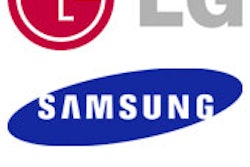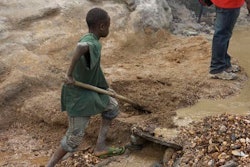
It’s no secret that we live in a troubled and troubling world. Bigotry and violence are seemingly camped out on every corner in every part of the globe. Even an evil that many people think ended a century and a half ago still is causing pain and suffering—slavery.
For example, in a place called Jharkhand, India, children as young as 3 are being forced to work in underground mines. For what? Beauty products. Mica, the mineral they’re scraping from the earth, is used in makeup, sunscreen, facial lotions and other products. And 60 percent of the world’s mica comes from Jharkhand.
Uzbekistan, one of the world’s largest cotton producers forces its citizens—teachers, doctors, it doesn’t matter—to shut down and pick cotton during the harvest season. And each citizen is given a quota. Fall short and you can lose your job or be jailed. For decades, children as young as 10 were forced to the fields. The government has “softened” so now those of 15 or 16 are the youngest.
And let’s not get too high and mighty here in the U.S. Workers at some Florida tomato farms were found in cramped, dirty trailers, monitored and chained to keep them from escaping between harvesting seasons. Whatever you call it—slave labor, forced labor—these, and so many other similar situations around the world, are supply chain issues that must be faced and eradicated.
“Slave and child labor is rampant in supply chains around the world,” says Justin Dillon, Founder and CEO of Made in a Free World, a network of individuals, groups, and businesses working together to disrupt slavery. “We live in a digitally connected and data-driven economy, and we have the tools and information to uncover it.”
Sure, the conflict minerals arm of Dodd-Frank is making a difference, as will the United Kingdom’s new Modern Slavery Act. But, says Dillon, they’re not enough.
“The way to fight slavery, which is a business, is to use business to fight it. But it’s not a fair fight. Each year, roughly $120 million of funding is provided to address slavery, but estimated profit from slavery is $150 billion a year.”
To help in the fight, Made in a Free World created its Forced Labor Risk Determination and Mitigation (FRDM) data base, which maps the bill of materials of 54,000 goods, products and services, allowing companies to get a better handle on their supply chain, including sub-tiers.
The not-for-profit recently teamed up with the Ariba Network and its huge data base of 1.8 million companies in 190 countries. That’s a lot of visibility.
“They can make more informed decisions about their supply chains that not only help their business, but make the world a better place,” says Chris Haydon, Senior VP of Product Management at Ariba, an SAP Company. “At the end of the day, you can outsource processes and manufacturing, but you can’t outsource accountability.”


















